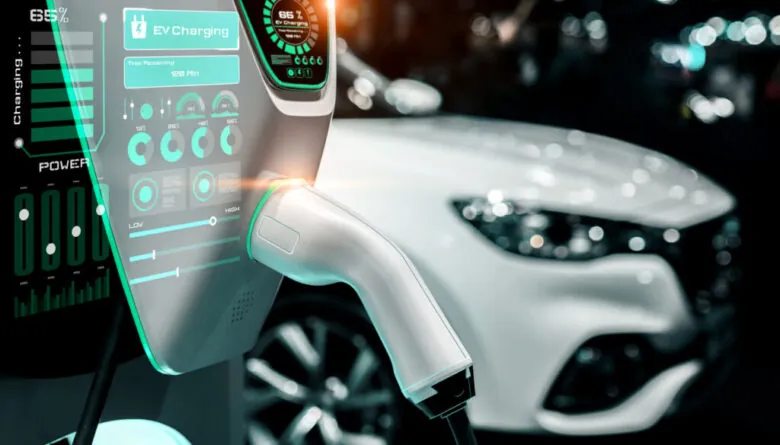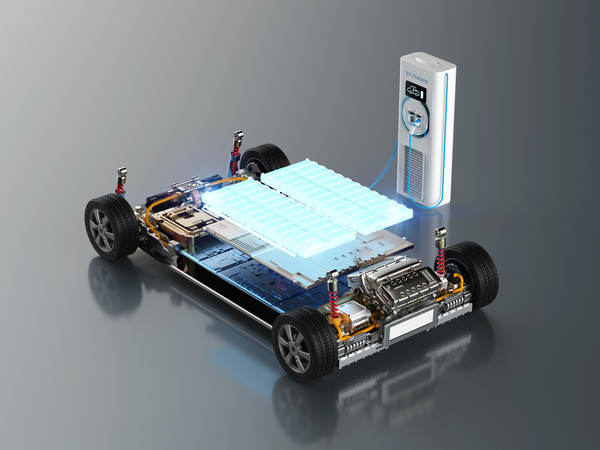How Electric Cars Are Helping Save the Planet The future of transportation is electric, and it is more promising than ever. With global concerns about climate change and the increasing need for sustainable solutions, the rise of electric vehicles (EVs) presents a transformative opportunity. As more people recognize the critical link between the environment and our daily choices, electric cars and sustainability have become central topics in the battle against global warming. These clean, efficient, and innovative vehicles are more than just a technological marvel – they are a powerful tool in the fight for a cleaner, greener planet.

The Shift to Electric: A Vital Step Toward Sustainability
The world is at a tipping point when it comes to addressing the climate crisis. With rising temperatures, frequent natural disasters, and significant environmental degradation, there is an urgent need for drastic change. One of the most impactful ways individuals and businesses can help reduce their carbon footprint is through the adoption of electric vehicles. The traditional internal combustion engine (ICE) vehicles, which run on gasoline and diesel, are among the largest contributors to air pollution and carbon emissions. According to the International Energy Agency (IEA), transportation accounts for nearly a quarter of global energy-related CO2 emissions, a significant portion of which is from cars and trucks.
In contrast, electric cars and sustainability go hand in hand.This means that, when combined with a clean energy grid, electric vehicles offer an almost zero-emission alternative to fossil-fuel-powered vehicles. As more drivers opt for electric cars, the overall demand for fossil fuels decreases, which leads to reduced oil consumption and lower emissions from extraction and transportation processes.
Reducing Greenhouse Gas Emissions
Gasoline-powered vehicles emit carbon dioxide (CO2) as a byproduct of burning fuel, contributing to the greenhouse effect that traps heat in the atmosphere. Electric vehicles, on the other hand, produce zero tailpipe emissions. This means that driving an EV doesn’t release harmful pollutants into the air, making it a cleaner option for individuals and cities alike.
In fact, studies show that electric cars can reduce emissions by up to 60% compared to traditional vehicles, even when accounting for the emissions generated from producing the electricity used to charge the car. As the electricity grid becomes greener with more renewable energy sources, the carbon footprint of EVs continues to shrink. Furthermore, with innovations in battery technology and energy storage, the energy efficiency of electric vehicles is continually improving.
Reducing Air Pollution and Improving Public Health
The benefits of electric cars and sustainability extend beyond the reduction of greenhouse gases. EVs also play a crucial role in improving air quality, particularly in urban areas. In many cities, air pollution from transportation is a major health concern. Diesel and gasoline vehicles emit particulate matter (PM), nitrogen oxides (NOx), and volatile organic compounds (VOCs), which contribute to smog, respiratory diseases, and other health problems.
Electric vehicles, by virtue of their design, produce no tailpipe emissions, significantly reducing the amount of harmful pollutants released into the atmosphere. This leads to cleaner air, which can help reduce the prevalence of asthma, bronchitis, and other lung conditions. As more cities adopt electric public transportation systems and more consumers choose EVs for personal use, the potential for cleaner, healthier cities becomes a reality.
Energy Efficiency: More Miles Per Watt
In addition to being environmentally friendly, electric cars are also much more energy-efficient than their gasoline counterparts. Internal combustion engines are notoriously inefficient, converting only about 20% of the energy from fuel into usable power for the wheels. Electric motors, however, are far more efficient, converting around 85-90% of the electrical energy from the battery into motion. This means that electric vehicles require less energy to travel the same distance, which ultimately reduces their environmental impact.
The Role of Renewable Energy in EV Adoption
This is a crucial step toward reducing global carbon emissions and achieving climate goals.
Additionally, the growth of solar-powered charging stations is a promising trend. Homeowners who install solar panels can power their electric vehicles using the energy generated by the sun, further reducing their reliance on grid electricity and decreasing their carbon footprint. As more governments and companies invest in renewable energy infrastructure, the synergy between electric vehicles and green power will continue to flourish.
The Lifespan and Recyclability of EV Batteries
As the electric vehicle industry grows, so does the demand for the batteries that power these vehicles. The production of lithium-ion batteries, which are used in most electric cars, does have an environmental impact, particularly in the mining of raw materials like lithium, cobalt, and nickel. However, innovations in battery recycling and second-life battery use are helping to reduce the overall environmental footprint of EV batteries.
Recycling programs have been developed to recover valuable materials from used EV batteries, such as lithium and cobalt, which can then be reused in the production of new batteries. This process helps to reduce the need for new raw materials and lessens the environmental impact of mining. Additionally, as the technology behind battery manufacturing and recycling advances, we are likely to see even more sustainable approaches to battery production.
Moreover, when EV batteries reach the end of their useful life in a vehicle, they can often be repurposed for other applications, such as energy storage systems. These second-life batteries can be used to store renewable energy for use during periods of low energy production, further enhancing the sustainability of the overall energy system.
Creating Jobs and Stimulating the Green Economy
The growth of the electric vehicle market is also stimulating the green economy and creating jobs in a variety of sectors. From manufacturing and assembly to charging infrastructure and renewable energy production, the shift toward electric vehicles is generating new employment opportunities that contribute to sustainable development.
For example, the construction of EV charging stations, the expansion of renewable energy sources, and the research and development of new battery technologies all require skilled workers. This shift not only helps drive innovation in clean technology but also supports economic growth in industries that contribute to a more sustainable future.
In addition, as governments and businesses adopt green policies and incentives for electric vehicle adoption, more individuals are able to make the switch to electric cars. These incentives, which may include tax credits, rebates, and subsidies, lower the upfront cost of purchasing an electric vehicle and make it more accessible to a wider range of consumers.
The Future of Electric Cars and Sustainability
Looking ahead, the future of electric cars and sustainability is incredibly promising. As battery technology continues to evolve, we can expect to see electric vehicles with longer ranges, faster charging times, and lower costs. In addition, as renewable energy becomes more widely available, the environmental benefits of electric cars will continue to grow.
Moreover, the automotive industry is investing heavily in electric vehicle research and development, which means that more options will be available to consumers in the coming years. From compact city cars to family-friendly SUVs and performance vehicles, the electric car market is expected to become more diverse and accessible than ever before.
The adoption of electric cars, combined with a green energy revolution, has the potential to dramatically reduce global carbon emissions and help mitigate the effects of climate change. As consumers, businesses, and governments continue to prioritize sustainability, the electric vehicle industry will play an increasingly important role in shaping a cleaner, healthier planet for future generations.
Conclusion
Electric cars are not just a passing trend – they are a key part of the solution to the global climate crisis. By reducing greenhouse gas emissions, improving air quality, enhancing energy efficiency, and supporting the transition to renewable energy, electric cars and sustainability are deeply interconnected. As more people embrace electric vehicles, the world moves closer to a cleaner, greener future.
With advances in battery technology, renewable energy infrastructure, and recycling efforts, the environmental benefits of electric cars will continue to grow. As we move toward 2025 and beyond, it’s clear that electric vehicles will play a crucial role in helping save the planet and ensuring a sustainable future for all.





